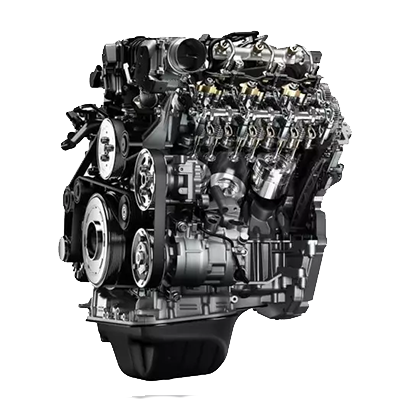Important Considerations and Tips for Picking the Right Engine for Your Requirements
Choosing the appropriate engine is a complex decision that needs mindful factor to consider of numerous variables to guarantee optimum performance for your particular requirements. The intricacies of engine choice prolong beyond these essentials, prompting a better assessment of important elements that can eventually influence your complete satisfaction and success.
Determine Your Objective
Identifying your purpose is an important very first action in choosing the appropriate engine for your demands. Recognizing the certain application you desire will guide your decision-making process and make certain that you choose an engine that aligns with your functional requirements. Whether you require an engine for a business car, commercial equipment, or a leisure job, each circumstance demands various efficiency features and abilities.
Consider the environment in which the engine will operate. Will it be subjected to heavy tons, severe temperature levels, or long term usage? Analyzing these factors will certainly aid you identify the necessary power result, gas effectiveness, and longevity needed to satisfy your purposes.
Additionally, think of the long-term implications of your option. Spending plan restraints, upkeep demands, and accessibility of parts are crucial considerations that will impact your overall satisfaction and functional effectiveness.
Eventually, articulating your function will streamline the option process and equip you to make a notified choice. By plainly specifying your objectives, you can examine prospective engines more effectively and pick one that not just fulfills your present requirements but likewise sustains your future objectives.
Evaluate Engine Specifications
As soon as you have actually plainly articulated your purpose, the following action is to examine engine specifications. This process includes an extensive assessment of various technological details that can considerably impact performance and suitability for your planned usage.
Begin by evaluating the engine's horse power and torque ratings. Horse power is vital for figuring out the engine's capacity to carry out job, while torque is essential for understanding exactly how well it can handle heavy lots or velocity. Furthermore, take into consideration the engine displacement, as it commonly associates with power output and performance.
Next, examine the engine typeâEUR" whether it is a gasoline, diesel, or alternative gas engineâEUR" as each kind has distinctive characteristics and applications. Take notice of the engine's arrangement (e.g., inline, V-type), as this can influence dimension, weight, and overall efficiency.
One more crucial element is the engine's air conditioning system, which can influence reliability and maintenance requirements. Last but not least, examine the maker's track record and warranty offerings, as these can provide insights into long-lasting efficiency and assistance. Thoroughly assessing these specifications will help make sure that you choose an engine that aligns with your particular needs and operational objectives.
Think About Fuel Performance
Gas performance is a vital variable to think about when choosing an engine, as it straight affects operational costs and environmental sustainability. An engine's gas effectiveness is typically determined in miles per gallon (MPG) for cars or in details fuel consumption (SFC) for airplane and marine engines. Greater fuel effectiveness not only reduces the amount of fuel consumed but likewise lessens greenhouse gas emissions, making it an accountable option for eco-conscious consumers.
When examining engine alternatives, it is vital to assess the driving problems and meant usage. Engines optimized for highway driving might exhibit far better gas performance contrasted to those designed for stop-and-go traffic. Additionally, think about the engine's innovation, such as turbocharging or crossbreed systems, which can substantially boost gas effectiveness.

Assess Upkeep Requirements

Some engines might require find more even more regular oil modifications, filter replacements, or specialized maintenance, which can impact your operational downtime. Engines with prevalent popularity usually have much better components accessibility, minimizing lead times during repair services.
One more critical facet is the technical proficiency required for maintenance. Some engines might necessitate customized training for specialists, which could limit your options for provider. Moreover, examine whether the engine's design permits simple access to components typically needing maintenance, as this can substantially impact labor expenses.
Budget Plan Your Financial Investment
Comprehending maintenance needs is simply one facet of selecting the ideal engine; monetary factors to consider play a just as vital function (amarok engine for sale). Developing a clear budget plan is vital, as it affects not only the first acquisition price however also lasting functional costs
When budgeting, think about both the continuous expenses and in advance costs such as gas efficiency, maintenance, and possible fixings. A relatively budget friendly engine may incur greater costs gradually because of bad fuel economic climate or frequent maintenance requirements. Furthermore, evaluate the accessibility and cost of extra components, as well as the service official website warranties used by manufacturers, which can supply monetary security versus unforeseen expenses.
It is additionally important to consider potential funding alternatives or leasing setups, which can ease prompt economic worries. Balance your wish for innovative features with your budget restraints, making sure that you purchase an engine that satisfies your performance requires without endangering economic stability.
Eventually, a well-rounded budget plan will encourage you to make enlightened decisions, straightening your engine selection with both your operational needs and monetary capabilities, leading to a more lasting investment in the long run.

Conclusion
In final thought, choosing the suitable engine necessitates a complete understanding of details needs and applications. Mindful evaluation of engine specifications, gas performance, and maintenance needs is crucial for educated decision-making.
Gas performance is a vital element to think about when picking an engine, as it straight influences operational costs and ecological sustainability. An engine's fuel efficiency is generally measured in miles per gallon (MPG) for lorries or in details gas intake (SFC) for airplane and marine engines. Diesel engines usually provide much better gas effectiveness than fuel engines. Eventually, selecting an engine with a solid focus on gas effectiveness can lead to substantial long-lasting cost savings and add positively to environmental initiatives. Cautious evaluation of engine requirements, gas performance, and upkeep demands is essential for notified decision-making.